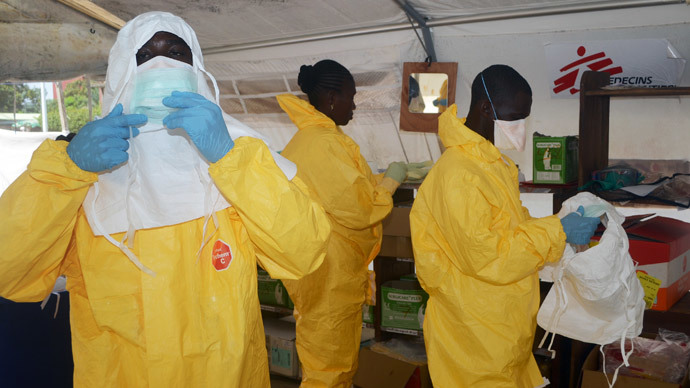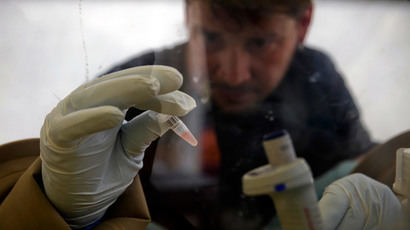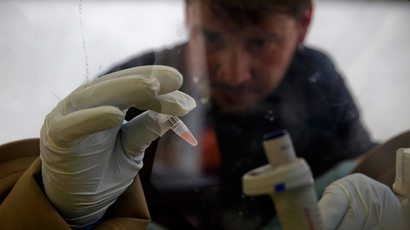UK doctors sound alarm over potential Ebola outbreak

Doctors in the UK are preparing for a possible outbreak of Ebola, one of the most virulent diseases known to humankind according to the World Health Organization.
Public Health England delivered letters to doctors urging them to look out for the warning signs of Ebola, which has already killed 672 people in West African Guinea, Liberia and Sierra Leone since it was first diagnosed in February. More than 1,000 others have been infected by the virus, including two American doctors.
Concerns that international air travel could spread the virus were heightened when a Liberian man who had travelled to Lagos in Nigeria died from the disease. However, the disease can go unnoticed for three weeks before symptoms set in, making passenger screening a difficult task.
There is currently no cure or human-safe vaccine for Ebola, which is spread via bodily fluids. Initial symptoms of fever and sore throat develop into vomiting, diarrhea and profuse internal and external bleeding. Victims may die of multiple organ failure within days of first contact, with some strains killing up to 90 percent of sufferers.
The last diagnosed case of Ebola in the UK was in 1979, when someone was accidentally infected in a laboratory. On that occasion, the patient survived.
“It’s possible someone infected will fly to Heathrow having infected other people sitting next to them or by using the toilet,” said Cambridge University’s Peter Walsh, a lecturer in archaeology and anthropology and an Ebola expert.
“This strain of Ebola is probably the second most deadly virus in the world after canine rabies. If you get canine rabies, you’re going to die, but we also have vaccines for that. This is worse than anthrax, but there are vaccines and treatments for anthrax, too.”
But Walsh said that any cases that do reach Britain would be far more manageable than has been the case in West Africa.
“Ebola is pretty containable with modern methods in modern countries,” he said. “You won’t see a major outbreak in the UK.”
Echoing Walsh's reassurance, Dr Brian McCloskey, director of global health at Public Health England said the chances of travellers contracting the virus were slim, but still urged vigilance of early signs of symptoms.
“Public Health England is monitoring closely the continuing Ebola outbreak in West Africa, the largest outbreak of this disease to date. It's clear the outbreak is not under control,” said McCloskey.
“The risk to UK travellers and people working in these countries of contracting Ebola is very low but we have alerted UK medical practitioners about the situation in West Africa and requested they remain vigilant for unexplained illness in those who have visited the affected area," he added.
“People who have returned from affected areas who have a sudden onset of symptoms such as fever, headache, sore throat and general malaise within three weeks of their return should immediately seek medical assistance - but it is important to stress that no cases of imported Ebola have ever been reported in the UK and the risk of a traveller going to West Africa and contracting Ebola remains very low since Ebola is transmitted by direct contact with the blood or bodily fluids of an infected person.”














